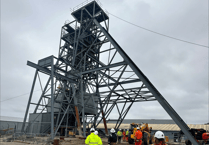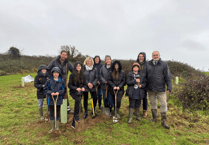DEVON and Cornwall’s Police and Crime Commissioner has said that there is an urgent need to tackle the region’s road safety.
Alison Hernandez, Police and Crime Commissioner for the region, has explored some of the ways in which South Western roads are being made safer for drivers.
In a statement, she said: “In the role of Police and Crime Commissioner, you have to deal with a lot of numbers. Costs, incidents, staff, demographics, injuries, priorities, percentages and an array of spreadsheets are par for the course in this job – and it can sometimes be hard to see the wood for the trees.
“However, there are some numbers that really stick with you. One such set of figures are the annual KSI statistics which reveal the number of people who are killed or seriously injured as a result of collisions on our roads.
“Last year, these figures revealed that 57 people died and a further 614 were seriously injured in Devon and Cornwall. Across the whole of Great Britain, the figure stands at a staggering 1,633 deaths and 27,904 serious injuries.
“These aren’t just numbers; these are peoples loved ones and family members, parents, children, brothers, sisters, friends - lives turned upside down by unimaginable tragedy and hurt.”
The commissioner has said that she believes if these numbers related to people dying in any other way ‘there would be a national outcry with action demanded from all corners’, however, she feels as though that for many, it is an accepted fact that crashes are inevitable, depsite this, she expresses “I can’t accept that.”
She continued: “The Vision Zero South West road safety partnership, which I helped form in 2019, collectively believes that one death on our roads is one too many. Together we are striving to reduce those numbers – initially by 50 per cent by 2030, but eventually to zero.
“National Road Safety Week is shining an extra bright light on some of the work it conducts tirelessly throughout the year.
“This includes events such as Learn2Live – a fantastic and effective theatre-based education scheme which reaches thousands of learner drivers throughout the region every single year.
“The partnership’s work also includes motorcycle training programmes to improve skills and perception, in-school child pedestrian schemes, and vital engagement with older motorists to help them drive safer for longer.
“Our work includes enforcing safe speeds on our roads, conducting targeted operations to remove those who pose danger to us behind the wheel, and helpful messaging designed to keep us all as safe as possible. We even pioneer the use of advanced technologies such as AI cameras which detect seatbelt and mobile phone offences – and can even help spot drink and drug drivers.
“But partnerships such as ours only have so much power. To make a real difference, we desperately need legislative support from central government in the form of a national road safety strategy, which will be the first in over a decade.”




-Liam-Westpfel-(Man-Down).jpg?width=209&height=140&crop=209:145,smart&quality=75)
Comments
This article has no comments yet. Be the first to leave a comment.